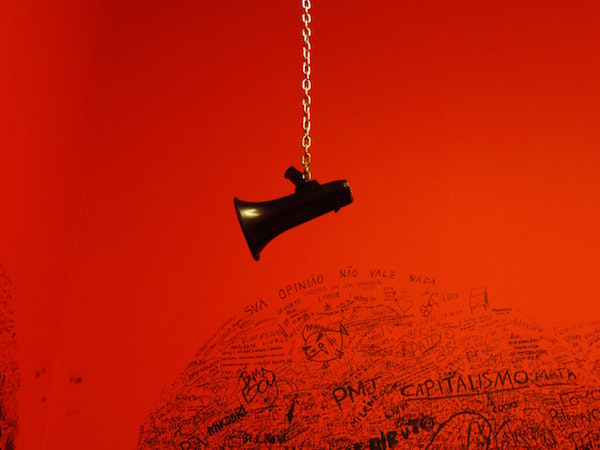On reflection I think there may well be more prophets at large during the Covid-19 Crisis than was the case during the entire twelve hundred years of the old testament.
During quarantine, webinars, virtual events and flash forums have become a fledgling industry in their own right. Zoom meetings are going to put a bigger dent in the established car market than Elon Musk.
We have even coined a new word for the English language. Quaranstreaming.
Lists, of course, hang tantalisingly from the web like ripe apples in an orchard. Moses brought us the 10 Commandments that he received on Mount Sinai. Stephen Covey offers us 7 Habits of Highly Successful People. I’ve got a list of 17 lists that I need to work through just in order to survive Covid-19. That’s a cumulative total of 136 essential actions for immediate implementation.
To make matters worse, last week there was a webinar on how to cope with anxiety during the Covid-19 Crisis. Unfortunately I couldn’t get the Zoom connection to work and I missed it. So now I’m racked with self-doubt that I might have missed the one lifehack skill, out of the 136 on my list, I really needed to make it through Lockdown.
Of course that’s another word we’ve managed to coin. Infodemic.
There is quite simply too much information and I must say I am increasingly buying into the observation from GIBS Business School that the one survival skill you will require in a post-Covid-19 media landscape is absorptive capacity. So it comes as a mild surprise to me that WARC (World Advertising Research Centre) is right now chanting the same old mantra that maintaining share of voice (SOV) as an effective response to the Covid-19 crisis.

In a WARC online article quoting Christian Polman, CEO at Ebiquity, it is asserted that increasing ad spend can lead to “substantially higher market share” in the post-Covid-19 crisis period. Polman explains:
“Typically, it takes up to three years for a lot of the brands to see the full impact of their marketing investments as registered by complete brand-equity modelling.”
Three years? Maintaining ad spend to sustain turnover I can understand, but focusing on SOV as the solution to long term market share recovery is a major over-reach. Don’t work about the historical data and the trendline. This is not a normal recession and the historical formulas don’t apply. Certainly not in South Africa. Right now I would imagine that the most important thing any brand in South Africa can do, is to make sure that it goes onto the register of essential items.
If the brand doesn’t survive into 2021 then a Share of Voice projection is irrelevant. Isn’t that the more sensible advertising response? Focus on making sure the brand survives. If the brand doesn’t survive into 2021 then we’re just measuring Share of Void. With the potential disaster implied in a potential 50% unemployment rate, I would suggest that taking the advertising budget and putting it into pricing might get a better result.
That’s not to say the relationship between share of voice and share of market is not important. It has been one of the pillars of strategic media budget setting since the ’60s and any planner who has worked on P&G or Unilever will attest to that. And it will be again but you have to recalibrate the brand shares and make the post-Covid-19 exit point ground-zero.
To suggest that by merely relatively out-spending a competitor a brand will experience long term market share gains when the market recovers, is outdated. More and more evidence is indicating that when this is all over, it’s the brands that responded specifically to Covid-19 and impacted communities, and proved their loyalty to customers, that will experience the most sustainable gains.
Right now, Hills has the dominant SOV for pet food. No other competitors visible at all. They are running a perfectly serviceable TVC and I’m sure they will experience a sales shift because of that increased awareness.
But what’s the prevailing Zeitgeist in Mzansi? It’s about taking one for the team. It’s about sacrifice. Take 25% of the Hills TV budget and make a specific offer along the lines of ‘for every bag you buy we’ll donate Rx to the SPCA for immediate relief to abandoned animals’. That’ll do more to build long term loyalty and market share growth than outspending your competitors during Lockdown.
Consider this brilliant piece of Covid-19 advertising from Burger King in the US.

This is the latest campaign which follows up their offer of free delivery to healthcare workers for anybody wanting to donate a BK meal. Students who are missing school due to lockdown are invited to solve questions in subjects such as math, biology, chemistry or literature. This can be done on the BK app or any of BK Facebook or Instagram pages. Once a student enters the correct answer, they can use the app to score a free Whopper.
You don’t have to outspend the other guys to gain share but you do have to out-think them.

Gordon Muller is Africa’s oldest surviving media strategist. Author of Media Planning – Art or Science. Mostly harmless! Read his Khulumamedia Blog here.














